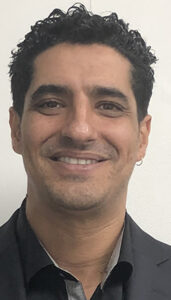By Shahar Masori

SAN DIEGO — Growing up in Israel, the High Holidays were more than just dates on the calendar—they were a rhythm, a pulse that guided life for weeks. You could feel it in the air as the days of Elul led up to Rosh Hashanah, and as Yom Kippur approached, the entire country seemed to shift into a different gear. The streets got quieter, the radio stations started playing more reflective tunes, and even the non-observant friends and neighbors seemed to move with a sense of introspection.
It’s something you almost take for granted when you’re there, in the midst of it. Schools would have assemblies about teshuvah (repentance), stores would advertise honey cakes and pomegranates, and the shofar’s call wasn’t limited to the synagogue—it was part of the public soundscape. On Erev Yom Kippur, it was perfectly normal to wish a stranger “G’mar Chatima Tova” as you picked up your last-minute groceries before the sun set. There was a shared understanding, a collective pause.
And then there’s Yom Kippur itself. That day in Israel is like nothing else I’ve ever experienced—except maybe during the Coronavirus shut down. I still remember the first time I walked through the “k’vish Ha’chof” (Coastal Highway), along with what felt like, half of the city. Not a single car in sight. It’s as if the entire nation takes a deep breath and holds it together for 25 hours. The absence of traffic noise creates this surreal silence, interrupted only by the laughter of kids on bikes and the murmur of people walking to and from shul in white clothes.
Now, fast forward to my first High Holidays in the United States. Suddenly, I was the one explaining to my non-Jewish colleagues why I was taking a day off for Yom Kippur, and that no, it wasn’t a “Jewish New Year’s resolution” day. The difference was striking, almost jarring. Outside the walls of the synagogue, it felt like any other weekday. Cars zoomed by, businesses were open, and there was no echo of the shofar to remind me that the Day of Atonement was here.
In the U.S., celebrating the High Holidays feels like stepping into an alternate reality for a few days, or hours. You carve out a sacred space in your schedule, while the rest of the world moves on. If you’re lucky enough to live in a Jewish community, there’s a sense of solidarity. But still, the contrast is sharp. On Yom Kippur, when I stepped out of the synagogue for a breath of fresh air, I was greeted not by silence but by the blare of car horns and the hustle of daily life. It was almost as if the holiness of the day was a secret only a few of us were in on.
And it’s not just Yom Kippur. Rosh Hashanah, too, is a different experience. In Israel, the festive meals felt intertwined with the entire nation’s celebration. You’d wish your taxi driver “Shanah Tova” on the way to your family’s gathering, and the bus driver would reciprocate. In the U.S., I’ve found myself whispering the same greeting to fellow congregants and explaining the significance of apples and honey to curious friends who might ask about the holiday.
It made me appreciate both experiences in different ways. In Israel, the High Holidays are a communal event, an opportunity to reconnect with tradition in a shared cultural space where almost everyone is on the same page. Here in the U.S., it feels more personal, almost private. It’s a chance to own my faith, to find my own ways of creating meaning in the midst of a world that isn’t pausing with me. I’ve come to treasure the stillness I create for myself during these days, the intentionality of carving out a slice of holiness in the midst of ordinary life.
But I’ll be honest—there are times I miss that feeling of being swept up in the tide of the High Holidays back in Israel. I miss the way the whole country seems to exhale together at the end of Yom Kippur, as if we’ve all been holding our breath through Neilah. I miss hearing the shofar echo through the streets, not just inside the synagogue walls.
In the end, maybe that’s what the High Holidays are all about—finding meaning in moments of pause, whether they’re shared with a whole nation or held quietly in our hearts.
*
Shahar Masori was raised in Hadera, Israel, and immigrated to San Diego in 2000, where he helped build a balloon decor business and raised two sons.